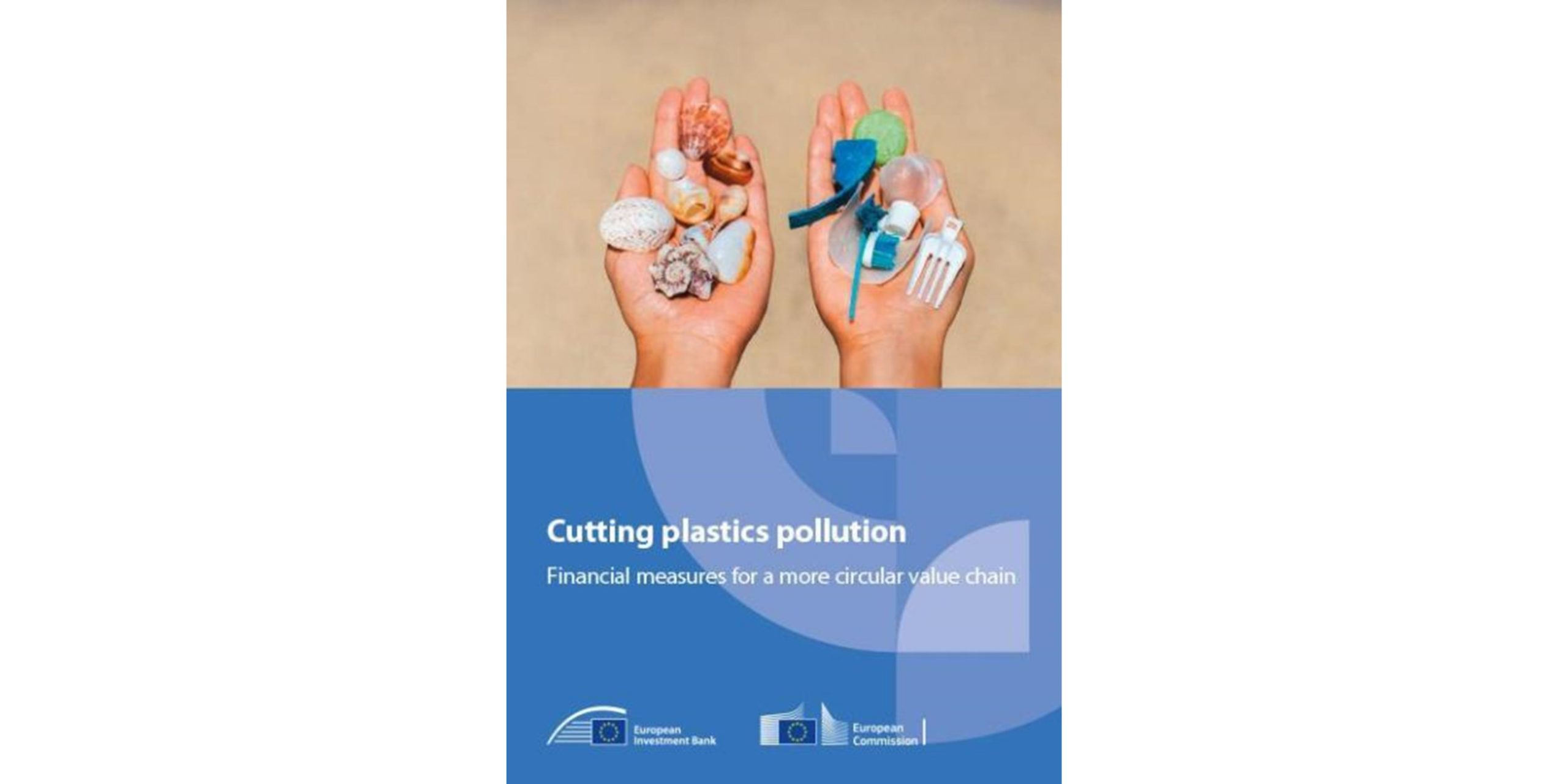- Plastic packaging is the biggest contributor to the plastic waste problem
- 25 companies are responsible for half of the world’s plastic production
- The profitability of sorting and recycling as well as the market for recycled plastics remain challenging compared to the current situation
- The solution to reinforcing the circular, sustainable plastics economy lies in the combination of new policy measures, increased capacity and transformative innovation in the design, collection, sorting and recycling of plastics
The European Investment Bank (EIB) unveiled a new study today titled “Cutting plastics pollution – Financial measures for a more circular value chain”. The study analyses the inefficiencies of the plastics value chain and their solutions. It examines ten root causes of the plastic waste problem and identifies investment opportunities and policy measures that will help address the world’s growing plastic crisis.
Plastics production, rapid consumption and widespread discharge into the natural environment — both on land and at sea – has been rising exponentially over the past 70 years. The implementation of a fully circular economy in plastics is essential in the face of ever-increasing complexity of the underlying compounds.
In the global context, the European Union is performing comparatively well in addressing plastic waste pollution and has set itself ambitious targets under the European Strategy for Plastics. Nevertheless, the report finds that an estimated investment gap of €6.7-8.6 billion must be closed to achieve Europe’s pledged goal of placing on the EU market each year 10 million tonnes (Mt) of plastic recyclates in final products by 2025. Achieving these targets requires substantial investment and a reliable end market for the recycled content. The largest gaps in sorting and recycling are identified in EU cohesion regions, centred on Central and Eastern Europe and South-East Europe.
Given the complexities of the plastics value chain, many of the necessary improvements require policy measures combined with targeted financial instruments. Policy recommendations by the study include legislative measures to tackle difficult-to-recycle plastics packaging, restrictions on composite packaging (such as packaging combining paper and plastics) and imposing quotas on recycling while boosting public awareness campaigns.
The report, carried out by the Bank’s Innovation & Digital Finance Advisory division under the InnovFin Advisory mandate from the European Commission, concludes with financial recommendations in order to address the problem of plastic waste pollution both within and outside the European Union. These include loans to corporate and mid-cap companies, municipalities, local authorities as well as support to research, development and innovation activities.
Summary of the report’s key findings: The 10 core inefficiencies and solutions in the plastics value chain
Background information
The European Investment Bank (EIB) is the long-term lending institution of the European Union owned by its Member States. It makes long-term finance available for sound investment in order to contribute towards EU policy goals.
InnovFin – EU Finance for Innovators” is a joint initiative launched by the European Investment Bank Group (EIB and EIF) in cooperation with the European Commission under Horizon 2020. InnovFin aims to facilitate and accelerate access to finance for innovative businesses and other innovative entities in Europe.
InnovFin Advisory assists eligible public and private counterparts to improve the bankability and investment-readiness of large, complex, innovative projects that need substantial long-term investments.
Source: European Investment Bank | News (https://bit.ly/3kHq9qZ)
